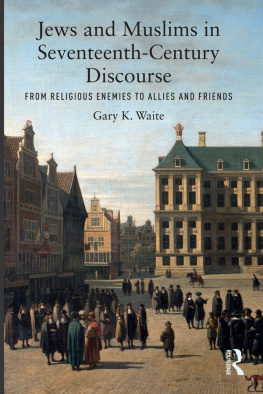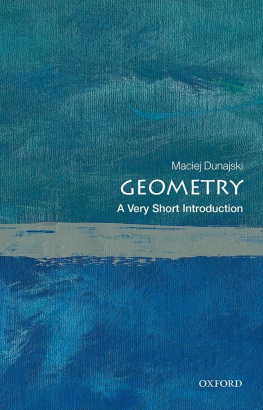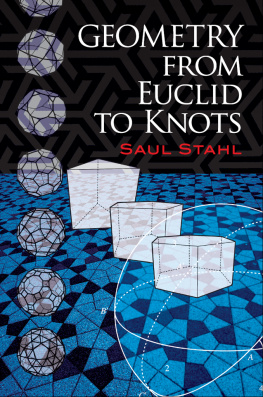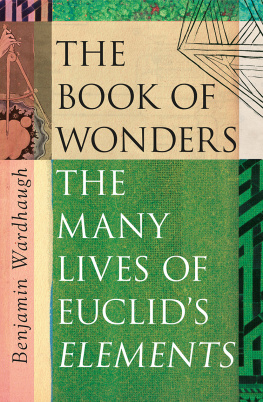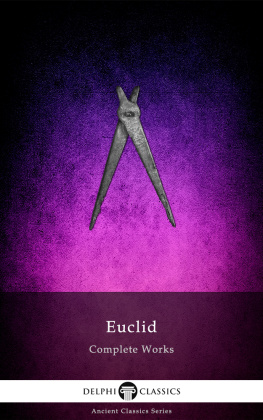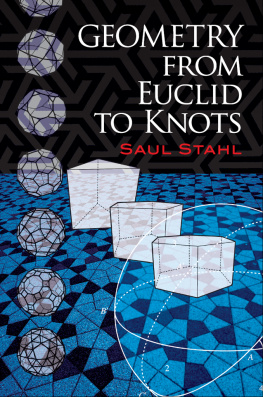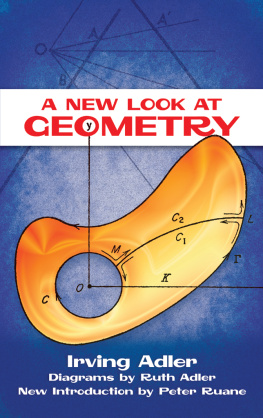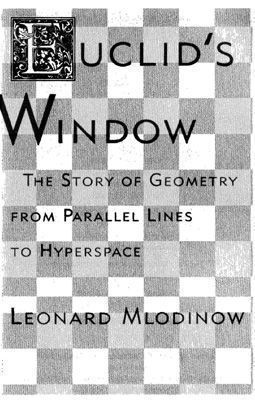Mathematics and the Craft of Thought in the Anglo-Dutch Renaissance
The development of a coherent, cohesive visual system of mathematics brought about a seminal shift in approaches towards abstract thinking in western Europe. Vernacular translations of Euclids Elements made these new and developing approaches available to a far broader readership than had previously been possible. Scholarship has explored the way that the language of mathematics leaked into the literary cultures of England and the Low Countries, but until now the role of visual metaphors of making and shaping in the establishment of mathematics as a practical tool has gone unexplored. Mathematics and the Craft of Thought sheds light on the remarkable culture shift surrounding the vernacular language translations of Euclid, and the geometrical imaginary that they sought to create. It shows how the visual language of early modern European geometry was constructed by borrowing and quoting from contemporary visual culture. The verbal and visual language of this form of mathematics, far from being simply immaterial, was designed to tantalize with material connotations. This book argues that, in a very real sense, practical geometry in this period was built out of craft metaphors.
Eleanor Chan is Leverhulme Early Career Fellow in the Music Department at the University of Manchester. Her work focuses on the interaction between word, image and notation in early modern Europe, with a particular interest in the musical and the mathematical. She received her PhD in History of Art from the University of Cambridge and has published widely, with articles on the visual implications of the English cadence, the interdisciplinary interaction between music and art in the English Renaissance, Anglo-Dutch geometry and realism, the Amsterdam city harpsichord case and mathematical visual culture, and the competing editions of Descartes anatomical treatise.
Routledge Studies in Renaissance and Early Modern Worlds of Knowledge
Series Editors:
Harald E. Braun (University of Liverpool, UK) and Emily Michelson (University of St Andrews, UK)
SRS Board Members:
Erik DeBom (KU Leuven, Belgium), Mordechai Feingold (California Institute of Technology, USA), Andrew Hadfield (Sussex), Peter Mack (University of Warwick, UK), Jennifer Richards (University of Newcastle, UK), Stefania Tutino (UCLA, USA), Richard Wistreich (Royal College of Music, UK)
This series explores Renaissance and Early Modern Worlds of Knowledge (c.1400c.1700) in Europe, the Americas, Asia and Africa. The volumes published in this series study the individuals, communities and networks involved in making and communicating knowledge during the first age of globalization. Authors investigate the perceptions, practices and modes of behaviour which shaped Renaissance and Early Modern intellectual endeavour and examine the ways in which they reverberated in the political, cultural, social and economic sphere.
The series is interdisciplinary, comparative and global in its outlook. We welcome submissions from new as well as existing fields of Renaissance Studies, including the history of literature (including neo-Latin, European and non-European languages), science and medicine, religion, architecture, environmental and economic history, the history of the book, art history, intellectual history and the history of music. We are particularly interested in proposals that straddle disciplines and are innovative in terms of approach and methodology.
The series includes monographs, shorter works and edited collections of essays. The Society for Renaissance Studies (http://www.rensoc.org.uk) provides an expert editorial board, mentoring, extensive editing and support for contributors to the series, ensuring high standards of peer-reviewed scholarship. We welcome proposals from early career researchers as well as more established colleagues.
Mathematics and the Craft of Thought in the Anglo-Dutch Renaissance
Eleanor Chan
For more information about this series, please visit: https://www.routledge.com/Routledge-Studies-in-Renaissance-and-Early-Modern-Worlds-of-Knowledge/book-series/ASHSER4043
Mathematics and the Craft of Thought in the Anglo-Dutch Renaissance
Eleanor Chan
First published 2022
by Routledge
605 Third Avenue, New York, NY 10158
and by Routledge
2 Park Square, Milton Park, Abingdon, Oxon, OX14 4RN
Routledge is an imprint of the Taylor & Francis Group, an informa business
2022 Taylor & Francis
The right of Eleanor Chan to be identified as author of this work has been asserted by her in accordance with sections 77 and 78 of the Copyright, Designs and Patents Act 1988.
All rights reserved. No part of this book may be reprinted or reproduced or utilised in any form or by any electronic, mechanical, or other means, now known or hereafter invented, including photocopying and recording, or in any information storage or retrieval system, without permission in writing from the publishers.
Trademark notice: Product or corporate names may be trademarks or registered trademarks, and are used only for identification and explanation without intent to infringe.
Library of Congress Cataloging-in-Publication Data
Names: Chan, Eleanor (Material cultures of music), author.
Title: Mathematics and the craft of thought in the Anglo-Dutch Renaissance / Eleanor Chan.
Description: New York, NY : Routledge, 2022. | Series: Routledge studies in renaissance and early modern worlds of knowledge | Includes bibliographical references and index. |
Identifiers: LCCN 2021019982 (print) |LCCN 2021019983 (ebook) |
Subjects: LCSH: Communication in mathematics--History--17th century. | Mathematics--Language. | Geometry--History--17th century. | Euclids Elements.
Classification: LCC QA42 .C43 2022 (print) | LCC QA42 (ebook) | DDC 808.06/651--dc23
LC record available at https://lccn.loc.gov/2021019982
LC ebook record available at https://lccn.loc.gov/2021019983
ISBN: 978-0-367-34532-7 (hbk)
ISBN: 978-0-367-34534-1 (pbk)
ISBN: 978-0-429-32643-1 (ebk)
DOI: 10.4324/9780429326431
Typeset in Sabon
by SPi Technologies India Pvt Ltd (Straive)
In loving memory of Philip Oliver, without whom this book would never have existed.
A friend, a champion, a mentor, and an absolute babe.
- 0.1 Girard Thibault, Tabula 1 copperplate engraving by J. Gelle, 90 55cm, in Girard Thibault, Academie de lEspee, Leiden: Elzevier, 1628, London: Wellcome Collection, Object Number 37386i
- 0.2 Willem van Swanenburg after Jan Cornelis Woudanus, The Fencing School at the University of Leiden, etching on paper, 334mm 401mm, 1610, London: British Museum, Object Number 1875,0814.740. British Museum
- 0.3 Thomas Tresham, the Triangular lodge (alias Warreners Lodge), limestone, 15931597, Northamptonshire: Rushton. Photo by the author
- 1.1 Anonymous, paper instrument of the mathematicall jewel, ink on paper, in John Blagrave, The Mathematical Iewel, shewing the making and most excellent vse of a singuler instrument, London: Walter Venge, 1585, London: British Library, C.60.o.7. British Library Board
- 1.2 Pieter Isaacsz, Allegorische voorstelling van Amsterdam als centrum van de wereldhandel, oil on panel, 79.4 165cm, (instrument by the Ruckers family), 16041607, Amsterdam: Rijksmuseum, Museum No. SK-A-4947. Image in the Public Domain.


